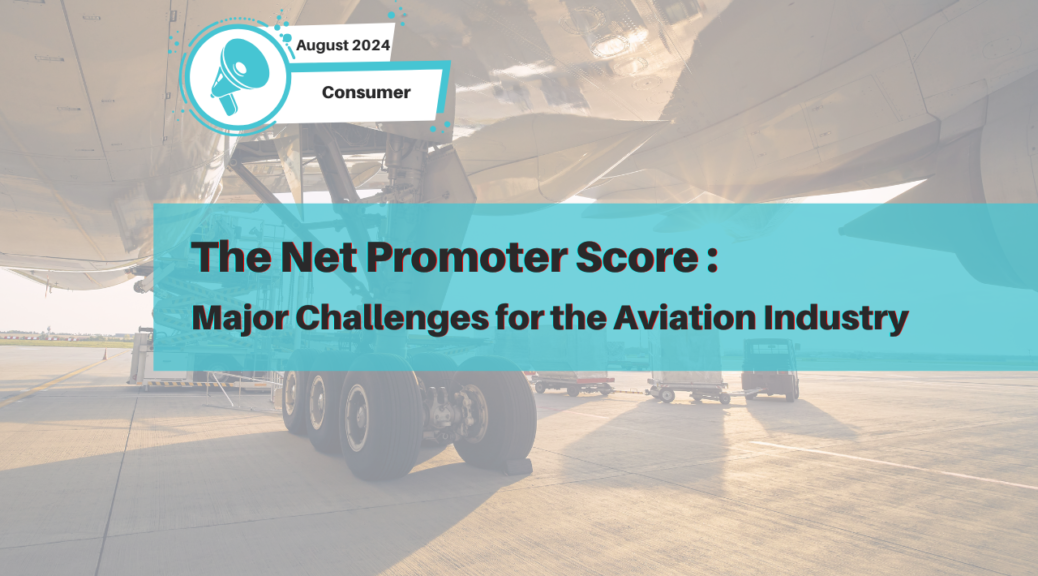Major Challenges for the Aviation Industry in 2024
The Net Promoter Score (NPS) is a widely used indicator in businesses, with numerous benchmarks available. However, it is often difficult to find benchmarks that truly reflect the Quebec reality.
Recovery and Turbulence
The aviation sector in Quebec in 2024 presents a mixed picture, marked by a robust post-pandemic recovery but facing significant structural challenges. While demand has rebounded strongly, even surpassing 2019 levels for cross-border travel in Quebec[1], the sector is grappling with a shortage of skilled workers and high operational costs (including airport rents, security fees, and fuel taxes).
Moreover, the Canadian aviation market is experiencing significant consolidation, with the disappearance of low-cost carriers Swoop, Lynx Air and Jetlines in the past year and WestJet’s acquisition of Sunwing. This development, coupled with supply chain challenges such as aircraft delivery delays and turbofan engine recalls, could lead to reduced availability and higher prices, particularly in small markets and remote areas, potentially deteriorating the customer experience.
Polarized Opinions
Our recent study of Quebec passengers reveals a NPS of 23 for this sector, indicating a moderate intention to recommend. In comparison, the intention to recommend the most recently used airline ranks mid-range among the industries measured in this study.
The polarization of opinions in the aviation sector is striking; it ranks third in terms of detractors and fourth in terms of promoters. However, the attitude and expertise of staff are major strengths.
That said, strong criticisms persist regarding frequent delays, high fees, lack of bilingualism, and limited space on planes. The extreme age groups (18-34 years and 65+) are particularly critical. Despite all the efforts made, the evolution of the customer experience seems stagnant, with nearly equal proportions of customers perceiving an improvement or deterioration in the airline experience since last year.
Strategies to Improve the Passenger Experience
Several recommendations emerge from the analysis of the situation:
- Improve Communication: Be clear and transparent about optional services and additional costs; engage in real-time communication with passengers.
- Optimize Operations: Focus on punctuality, connections, baggage handling, and minimizing passenger effort in case of unforeseen events.
- Enhance the Onboard Experience: Improve meal quality, seat comfort, and modernize the fleet.
- Personalize Service: Tailor the experience to different types of travelers (self-service, individual support, hybrid mode), ensure French-language service on Quebec routes, and consolidate customer data to optimize the personalization of the experience.
It is also important to choose a key performance indicator that includes polarized opinions, such as NPS or an average satisfaction score, rather than a percentage of satisfied customers, for example. Additionally, tracking the evolution of promoters and detractors often reveals interesting nuances for analysis and decision-making.
Don’t Miss the Turn!
The Quebec aviation sector in 2024 is at a crucial crossroads, facing complex challenges despite an encouraging post-pandemic recovery. To improve passenger satisfaction, the industry will need to adapt quickly, focusing on optimizing operations, personalizing services, and transparent communication, all while navigating a constantly evolving economic and regulatory landscape.
Survey methodology
This online survey was conducted from May 24 to 30, 2024, with 695 French-speaking Quebec adults. The sample was drawn from the SOM Panel, which consists mainly of individuals randomly recruited by phone (landline and mobile), making it a probabilistic sample. The data was weighted to best reflect the characteristics of the population based on age, gender, household size, education, the proportion of adult homeowners, and region. The maximum margin of error, for all respondents, is +/- 4.2%, 19 times out of 20.
